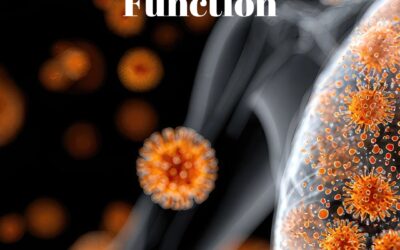Node Smith, ND
A new research study from Australia – Curtin University – is looking into the use of N-Acetyl Cysteine (NAC) for the treatment of methamphetamine addiction.1 A clinical trial to prove its efficacy as well as safety is pending.
N-ICE Trial
The trial has been named N-ICE and is being conducted by the National Drug Research Institute, Curtin University. “Ice” is street term for crystal meth. The hope is that NAC will help provide a reduction in the cravings that are seen with addiction to this drug, and aid in the ability to quit.
NAC has been noted to have a modulating effect on neurochemistry
In previous studies, NAC has been noted to have a modulating effect on neurochemistry, targeting specifically glutamate in the brain. Glutamate is a known factor in the experience of cravings. Methamphetamine is known to trigger mood changes, which can lead to self harm, and NAC has been seen to reduce these types of mental symptoms in other studies.
NAC is used conventionally for acetaminophen overdose
NAC is currently used conventionally for acetaminophen overdose, as well as in patients with cystic fibrosis. It is also used widely as an antioxidant to support liver function, support immune function, break up bacterial biofilm and thin mucus. It is well known for its use in alcoholism to counteract the toxic effects of alcohol on the liver. It has many other uses.
First attempt at targeting addictive behavior
NAC is the first attempt at targeting addictive behavior, rather than the effect of the addictive substance as a component of treating addiction. Other agents, such as naltrexone, used for opiate addiction, actually block the effects of the addictive drug. Since most meth addicts use other addictive substances as well, addressing the underlying behaviors and the cravings for drugs in general may have great benefit.
The trial
The trial will include 180 participants. Half will be given NAC for 12 weeks, while the other half will serve as the control group. The researchers hope to publish the results within the next 2 years. This will be the largest clinical trial using NAC for addiction and could support the use of a low-cost intervention for the growing problem of drug addiction.
Source:
Image Copyright: <a href=’https://www.123rf.com/profile_sidelnikov’>sidelnikov / 123RF Stock Photo</a>
 Node Smith, ND, is a naturopathic physician in Portland, OR and associate editor for NDNR. He has been instrumental in maintaining a firm connection to the philosophy and heritage of naturopathic medicine among the next generation of docs. He helped found the first multi-generational experiential retreat, which brings elders, alumni, and students together for a weekend camp-out where naturopathic medicine and medical philosophy are experienced in nature. Four years ago he helped found the non-profit, Association for Naturopathic ReVitalization (ANR), for which he serves as the board chairman. ANR has a mission to inspire health practitioners to embody the naturopathic principles through experiential education. Node also has a firm belief that the next era of naturopathic medicine will see a resurgence of in-patient facilities which use fasting, earthing, hydrotherapy and homeopathy to bring people back from chronic diseases of modern living; he is involved in numerous conversations and projects to bring about this vision.
Node Smith, ND, is a naturopathic physician in Portland, OR and associate editor for NDNR. He has been instrumental in maintaining a firm connection to the philosophy and heritage of naturopathic medicine among the next generation of docs. He helped found the first multi-generational experiential retreat, which brings elders, alumni, and students together for a weekend camp-out where naturopathic medicine and medical philosophy are experienced in nature. Four years ago he helped found the non-profit, Association for Naturopathic ReVitalization (ANR), for which he serves as the board chairman. ANR has a mission to inspire health practitioners to embody the naturopathic principles through experiential education. Node also has a firm belief that the next era of naturopathic medicine will see a resurgence of in-patient facilities which use fasting, earthing, hydrotherapy and homeopathy to bring people back from chronic diseases of modern living; he is involved in numerous conversations and projects to bring about this vision.





















